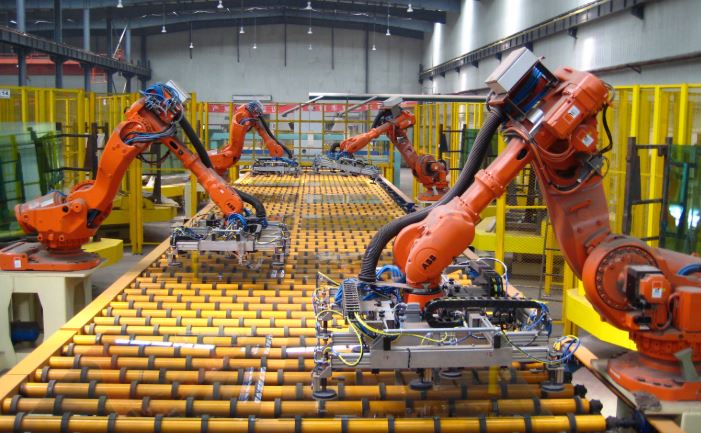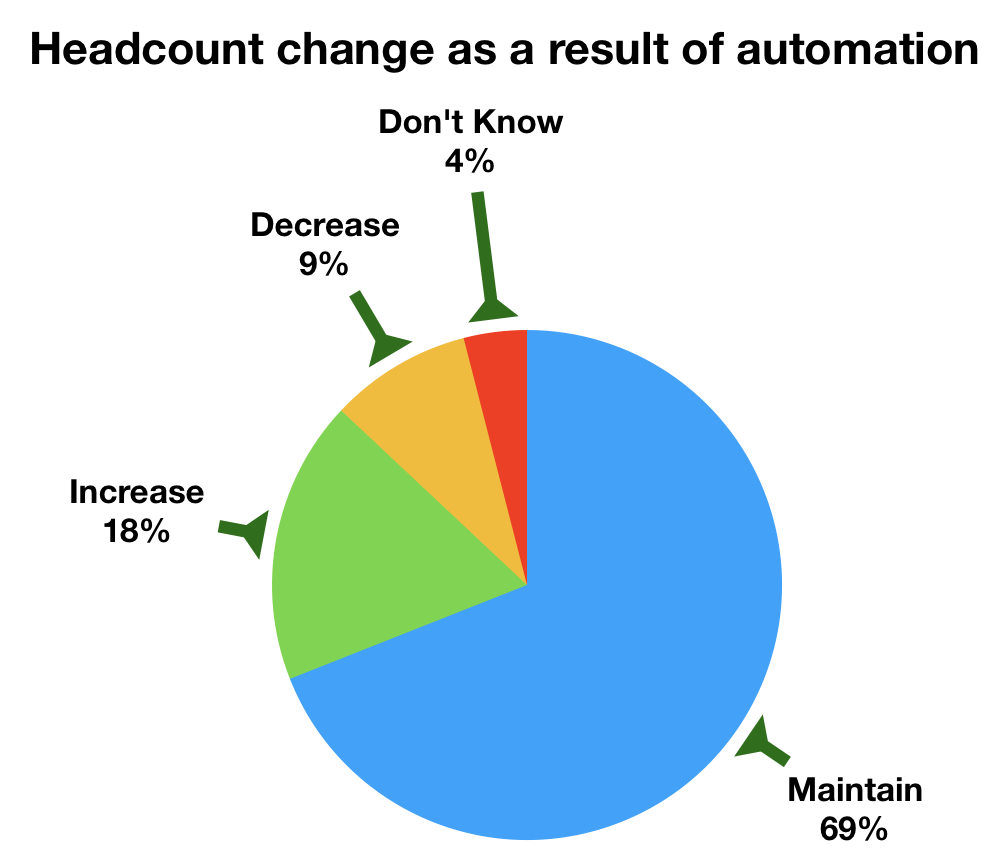
There are concerns that robot workers are replacing human jobs. It is a rational thing to worry about given the rise of automated solutions to many tasks traditionally carried out by humans, such as self-driving vehicles, AI customer service bots and robots doing manufacturing duties.
However, according to a recent report by ManpowerGroup titled “Humans Wanted: Robots Need You”, the actual impact automation is currently having on headcount is not as bleak as one might think.
The research paper revealed that 87% of employers plan on increasing or maintaining headcount as a result of automation – up from 83% to 87% in three years.
Instead of eliminating employment opportunities, companies are boosting investments in digital, shifting tasks to robots and creating jobs.
ManpowerGroup asked 19,000 employers across 44 countries about:
- The impact of automation on job growth over the next two years.
- The functions they plan to increase headcount the most.
- The talent strategies they have in place to ensure a future-fit workforce.

Organizations automating tasks are adding the most jobs
Of the 41% of companies that reported automating tasks over the next 2 years, 24% said they will create more jobs. This is 6% higher than companies that don’t plan to automate.
Jonas Prising, Chairman & CEO, ManpowerGroup, said:
“The focus on robots eliminating jobs is distracting us from the real issue. More and more robots are being added to the workforce, but humans are too. For three consecutive years our research shows most employers plan to increase or maintain headcount as a result of automation. Tech is here to stay, and it’s our responsibility as leaders to work out how we integrate humans with machines.”
Humans will remain important in a world of advanced machines
Dave McKay, President, CEO, Royal Bank of Canada, recently published an article featured on the World Economic Forum website stressing the importance of humans in a world where machines are becoming increasingly powerful.
McKay said: “It’s clear that technology will not be a replacement for many of the skills needed for the jobs of the future.” He believes that machines will act as a “supporter and integrator”, making digital fluency “just as important as literacy and numeracy” in the future.
And this was a key finding in a major study the Royal Bank of Canada conducted of the Canadian workforce called Humans Wanted.
The report said: “More than a quarter of Canadian jobs will be heavily disrupted by automation in the next decade, and half will require a new mix of skills even if the job title stays the same.
“That doesn’t mean those jobs are going away. The Canadian economy will create 2.4 million new jobs between now and 2021 – but almost all of them will require a different approach. The economy will be built on a mobile workforce, constantly learning, training and upgrading to meet the demands of a changing world.”
